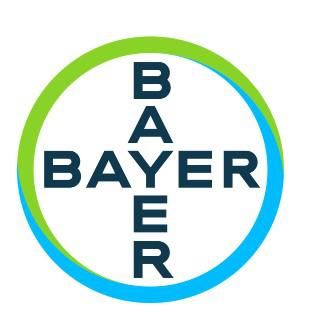BAYER AG

🇩🇪Germany
- Country
- 🇩🇪Germany
- Ownership
- Public
- Established
- 1863-08-01
- Employees
- 99.7K
- Market Cap
- $30.1B
- Website
- http://www.bayer.com
ESC 2024: FINEARTS-HF trial sheds positive light on Kerendia for HFmrEF/HFpEF
The Phase III FINEARTS-HF trial presented at the ESC conference showed Bayer's Kerendia (finerenone) significantly reduced CV death and HF events by 16% in HF patients with LVEF ≥40%. Finerenone, a non-steroidal MRA, demonstrated safety and efficacy in a double-blind, placebo-controlled study, with findings consistent across subgroups. Kerendia, initially approved for chronic kidney disease with type 2 diabetes, may expand its use to HF pending FDA approval.
Finerenone improves outcomes in patients with mildly reduced, preserved ejection fraction
Finerenone reduced CV death and worsening HF risk by 16% in HF patients with mildly reduced or preserved ejection fraction, per FINEARTS-HF trial. Pooled analyses showed benefits of finerenone and MRAs in high-risk patients.
Finerenone Cuts Heart Failure, Death Risk in Clinical Trial
Finerenone reduced heart failure events and cardiovascular death in HF patients with mildly reduced or preserved ejection fraction. The trial, led by Brigham and Women's Hospital and funded by Bayer, showed fewer HF events and cardiovascular deaths in the finerenone group compared to placebo, with higher rates of hyperkalemia. Results were presented at the European Society of Cardiology Congress 2024 and published in the New England Journal of Medicine.
Sustained disease control with aflibercept 8 mg: a new benchmark in the management of ...
JFK, PL, CCW, TYW, XZ, PMW, SL, LB, ZH, SF, KWC, KR, and SS have various consulting roles, advisory board memberships, or research support from numerous pharmaceutical and medical technology companies.
Elinzanetant Phase III Data Published in The Journal of American Medical Association (JAMA)
Elinzanetant, a dual NK-1 and 3 receptor antagonist, showed efficacy and safety in Phase III OASIS 1 and 2 studies for treating moderate to severe VMS in menopause, reducing VMS frequency and severity, and improving sleep disturbances and quality of life.
Related Clinical Trials:
Bayer Initiates Phase II Study of Soluble Guanylate Cyclase Activator (BAY3283142) in Patients with Chronic Kidney Disease
Bayer starts Phase II ALPINE-1 study of BAY3283142, an sGC activator for chronic kidney disease, aiming to provide a new treatment option for cardiovascular diseases.
Bayer Submits New Drug Application to U.S. FDA for Elinzanetant for the Treatment of Moderate to Severe Vasomotor Symptoms Associated with Menopause
Bayer submitted a New Drug Application (NDA) to the U.S. FDA for elinzanetant, an investigational compound for treating moderate to severe vasomotor symptoms (VMS) associated with menopause, based on positive results from Phase III OASIS 1, 2, and 3 studies. Elinzanetant, a non-hormonal option, significantly reduced VMS frequency and severity with a favorable safety profile, marking a milestone in addressing women's health needs globally.
© Copyright 2024. All Rights Reserved by MedPath
